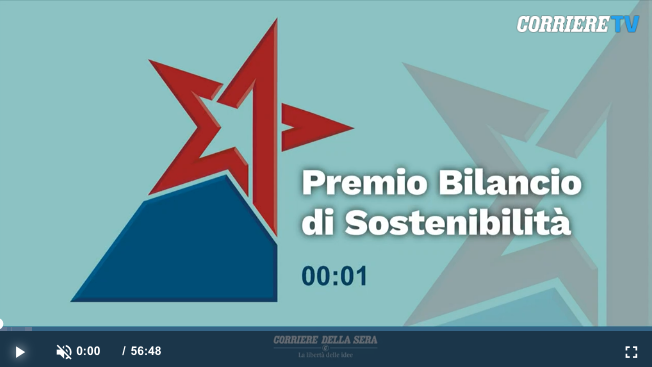Because telling is as important as doing
When it comes to sustainability and business, actions are the starting point, but they are not everything. Knowing how to communicate corporate initiatives to respect people and the environment becomes a fundamental step. One of the tools that help companies in this regard is the Sustainability Report. However, as Sergio Bocconi writes in Corriere Della Sera, even “the choice of integrating the accounting balance sheet with the non-financial one is an important step, but not sufficient: however ambitious the objectives, however precise the criteria with which they are measured, however coherent the intentions and projects, the sustainability of a company also depends on how and how effectively it is communicated”.
This is why Corriere Della Sera, in collaboration with Bologna Business School, has chosen to award the companies that have distinguished themselves in enhancing this critical document. A document that is worth remembering is not always compulsory. According to the European Directive 254 of 2014 and the Legislative Decree 254 of 2016 that transposed it in Italy, banks, insurance companies and companies listed on a regulated market in Italy or the European Union that have either more than 500 employees and a total balance sheet of 20 million euros, must prepare it. Or that have total revenues from sales and services of 40 million euros. The assessment involved 74 listed and unlisted companies in the Food, Fashion and Energy sectors based on 15 parameters, including social impact, environment, and governance.
We asked Leticia Canal Vieira from the Center for Sustainability and Climate Change BBS – the University of Bologna, who analyzed and evaluated the reports with Mariolina Longo and the Director of the Center Matteo Mura, to tell us her impressions of this important initiative.
“The first aspect I would like to highlight of this event is the participation. Numerous enthusiastic companies took part in the initiative, lending themselves to the evaluation. This is undoubtedly a positive element. Many small and medium-sized companies have chosen to present a sustainability report, despite there being no legal obligation to do so. It also means that 74 companies of different sizes have such confidence in their commitment that they are ready to put it to the test. This is an excellent sign for our country, indicating that awareness is growing that relying solely on profit is no longer enough. A business embedded in a society where inequality and environmental degradation exist cannot be a flourishing business. Sustainability goals are also beneficial to the business itself. Everything is connected, and no element can be separated from the other when it comes to sustainability. Another positive sign is the homogeneity of vision that emerged between academia and industry during the event. What we academics see through the data and analysis we conduct every day resonates in the balance sheets of companies and in the words of those who run them. The themes that we have included in our survey model, such as, for example, the need to give ourselves medium-term goals and to measure them consistently and carefully, are also those that we have found in the words of experts and companies. I find, in fact, that it is fundamental for us researchers to verify on the ground of business themes and models applied in the academic field.”
Elisabetta Soglio also agrees, writing in Corriere Della Sera: “For us, we are convinced, everyone has won: because just the fact of investing time and personnel to draw up a report of this type (…) means having understood that traditional business no longer works on its own and that the much-quoted ESG criteria (environmental, social, governance) must be included in the way of doing business: in the raw materials chosen, in the processes adopted, in the relationship with employees, in respect for equal opportunities, in the final product, in consideration of customers and so on”.
The focus groups organized for the Sustainability Report 2022 Award, which was broadcast in live streaming that opened with the speech of the Minister for Ecological Transition Roberto Cingolani, were attended by: sociologist and economist Paolo Venturi, director of Aiccon-Italian Association for the Promotion of the Culture of Cooperation and Nonprofit; Cristina Fioravanti, human resources manager of Asvis; Tommaso Rondinella for Banca Etica; Francesco Bicciato, secretary-general of the Sustainable Finance Forum; Ruggero Bodo advisor of Fondazione Sodalitas; Elisa Petrini, coordinator of Impronta Etica.
Read the supplement on Corriere della Sera by clicking here.




